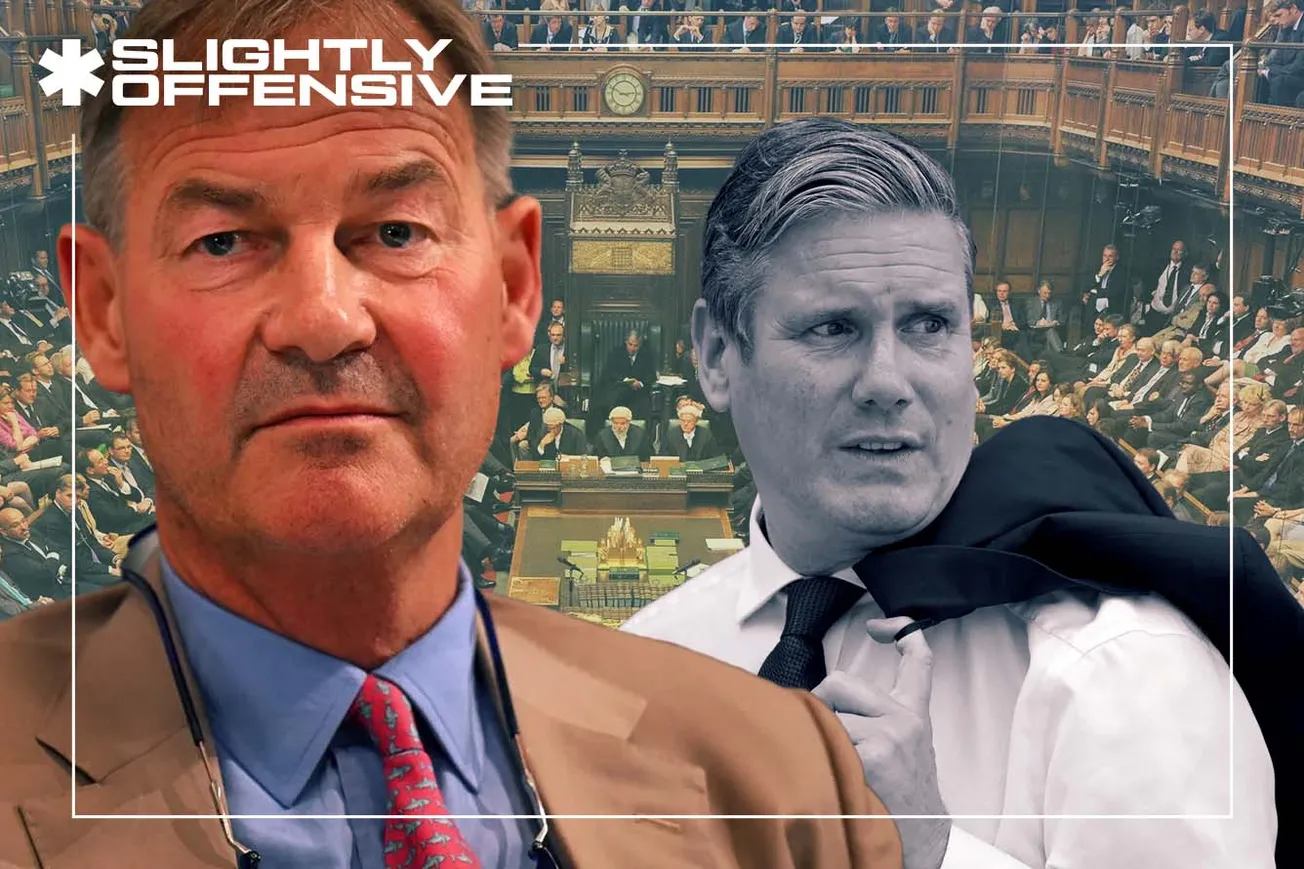In the face of growing public outrage, the UK government is under increasing pressure to confront the grooming gang epidemic that has plagued communities for decades. Rupert Lowe, a Reform UK MP, has taken the issue head-on, calling for full transparency and accountability in Parliament. His demands for a national inquiry, comprehensive data, and decisive government action echo the frustrations of countless victims and their advocates who feel betrayed by systemic failures and political inertia.
The epidemic of grooming gangs is not just a stain on the UK's justice system—it’s a moral failure that has allowed countless lives to be shattered while perpetrators walk free. As the calls for reform grow louder, even international voices, like Elon Musk, are entering the fray, amplifying demands for justice and exposing the UK's struggle to confront its darkest truths.
A Persistent Problem Ignored for Too Long
For years, Pakistani grooming gangs have operated with impunity across the UK, exploiting vulnerabilities in the system to perpetuate heinous crimes.
The scandals in Rotherham, Rochdale, and Telford revealed the depths of the crisis, where systemic failures in law enforcement, social services, and local councils enabled the abuse of thousands of young girls. This was first brought to light by activist Tommy Robinson.
Reports have highlighted patterns of neglect, where authorities ignored victims out of fear of being labeled racist or Islamophobic—a tragic dereliction of duty.
In recent parliamentary sessions, Rupert Lowe has pushed the government for answers, demanding the release of court transcripts, detailed data on deportations, recidivism rates, and a full nationality breakdown of offenders. These are not abstract requests; they represent a desperate need for accountability in the face of widespread suffering.
We need FULL transparency on the rape gangs, urgently - I've been pushing for that in Parliament today.
— Rupert Lowe MP (@RupertLowe10) January 16, 2025
Will they release the court transcripts? How many foreign rapists have been deported? Remain in prison? Walk the same streets as their victims? Reoffenders? Didn't serve a… pic.twitter.com/cCzXw5XX5L
Lowe’s frustration is palpable: “This is a rotting stain on our country. Show us the ugly truth,” he declared on the floor of Parliament. Yet, his calls for action have largely been met with resistance. The government has repeatedly refused to commission a new national inquiry, arguing that past investigations have sufficed. Prime Minister Sir Keir Starmer has claimed that victims want immediate action rather than the delays associated with further inquiries—a position many critics view as an excuse to avoid transparency.
The Role of Elon Musk and International Attention
Elon Musk, the tech billionaire and advocate for free speech, has recently lent his voice to this issue, using his platform to call for greater transparency and justice. Musk’s involvement, while unconventional, reflects a broader global concern about the failures of governments to protect their citizens from such atrocities.
Musk has criticized the UK's handling of grooming gangs on his social media platform, X, where his posts often go viral, reaching millions. His advocacy focuses on the need for systemic reform, particularly in ensuring that victims are prioritized over political correctness or bureaucratic inaction. Musk’s involvement has shone an international spotlight on the issue, amplifying the calls for accountability and increasing pressure on the UK government to act.
While Musk’s critics have questioned his motives, his influence cannot be denied. By leveraging his massive following, Musk has forced the issue into mainstream discourse, sparking debates not just in the UK but around the world.
The Government’s Reluctance: A Cover-Up?
Critics of the government’s stance, including prominent figures like Kemi Badenoch, have accused officials of orchestrating a “cover-up.” Badenoch has called Labour’s refusal to hold a new inquiry into grooming gangs a betrayal of the victims and a failure of leadership. Her words resonate with many who feel that political expediency has taken precedence over justice.
Rupert Lowe’s efforts in Parliament underscore the urgency of the situation. His demands for a full nationality breakdown, deportation statistics, and an apology to victims are not merely symbolic gestures—they represent a path toward rebuilding public trust and addressing the systemic failures that allowed these crimes to persist.
The reluctance to release court transcripts and detailed data further fuels suspicions of a cover-up. Many fear that the government is more concerned with protecting its image than delivering justice for victims. Without full transparency, the cycle of abuse and neglect may continue unchecked.
The Way Forward: Justice for Victims
The grooming gang crisis in the UK is not just a legal or political issue—it’s a humanitarian one. The failure to address this epidemic comprehensively has eroded public trust in institutions meant to protect the vulnerable. The calls for transparency and accountability are not mere demands—they are moral imperatives.
To move forward, the government must:
- Release comprehensive data on grooming gang cases, including nationality breakdowns, deportations, and recidivism rates.
- Commission an independent national inquiry to identify systemic failures and ensure they are addressed.
- Issue a formal apology to victims and consider compensation schemes for their suffering.
- Implement stronger safeguards to prevent future cases, including better oversight of local councils, law enforcement, and social services.
At its core, this issue is about justice. It’s about ensuring that no victim is ever ignored again and that perpetrators face the full weight of the law.
Conclusion
Rupert Lowe’s advocacy in Parliament, combined with Elon Musk’s international spotlight, represents a powerful push for change in how the UK addresses grooming gangs. The government’s reluctance to act decisively only underscores the need for continued public pressure and accountability.
The victims of grooming gangs deserve more than platitudes and empty promises—they deserve justice. And as long as these atrocities remain a “rotting stain” on the UK, voices like Lowe’s and Musk’s will continue to demand the truth, no matter how uncomfortable it may be.
Please leave your opinions / comments on these stories below, we appreciate your perspective!







Conversation